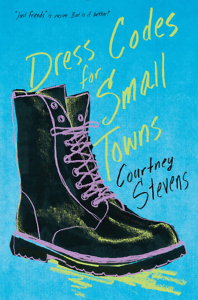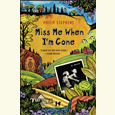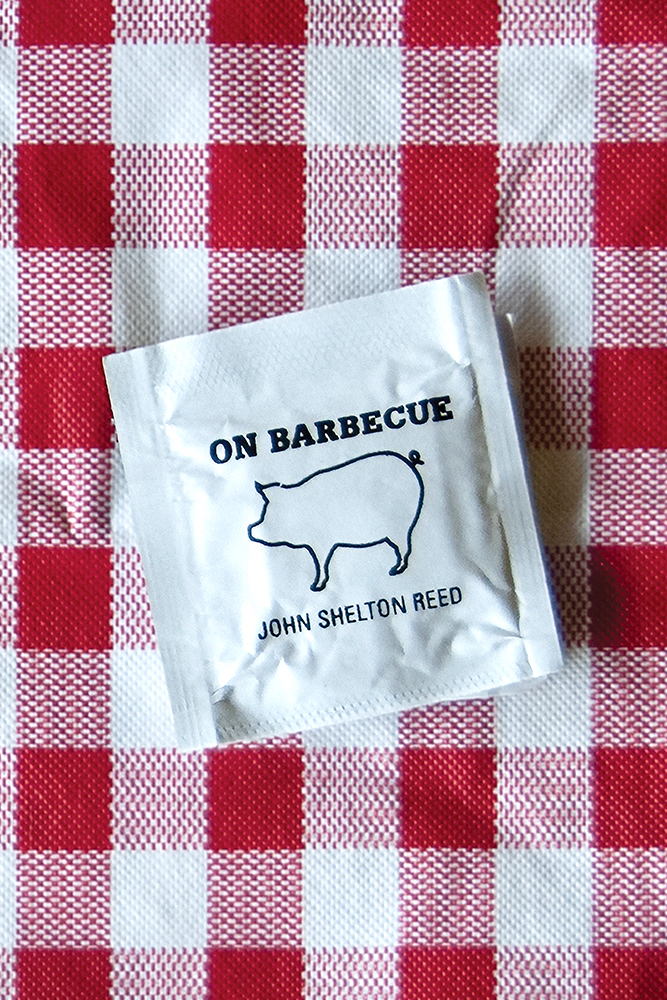Beautiful, Muddy Things
A teenager carves a small-town space for herself in Courtney Stevens’s latest YA novel
At the outset of Courtney Stevens’s third YA novel, Dress Codes for Small Towns, Billie McCaffrey and her friends are about to set fire to the youth room of their church during a lock-in. The accident is the result of an ill-conceived game called “Things To Do with a Church Microwave.” After discovering that boiling a sweat sock in a coffee mug is far more explosively flammable than one might think, the whole crew is in hot water as well. But Billie’s situation is more delicate than the others’: her father, Brother Scott McCaffrey, is supervising the lock-in, and the teens’ hijinks could cost him his pastorate in this conservative town. As Billie succinctly observes, “Dad has a common problem among ministers: he reproduced.”
 The poignant, oft-tormented dynamic between headstrong, high-spirited, tomboyish Billie and her loving but professionally and socially vulnerable father is one of many powerful subjects that Stevens’s incandescent new novel confronts with tremendous feeling and humor.
The poignant, oft-tormented dynamic between headstrong, high-spirited, tomboyish Billie and her loving but professionally and socially vulnerable father is one of many powerful subjects that Stevens’s incandescent new novel confronts with tremendous feeling and humor.
Seventeen-year-old Billie is co-ringleader of a group of six friends who have dubbed themselves the Hexagon. Billie—wearer of combat boots, maker of industrial art—has never been what the people of Otters Holt, Kentucky, expect a pastor’s daughter to be. Yet Billie also loves the town with her whole fiery soul: “Otters Holt is on a verdant strip of land between Lake Barkley and Kentucky Lake. Both lakes are man-made, fed by the Tennessee River, and gorgeous. When I was a kid I combined Robin’s Egg and Cornflower blue attempting to color the exact shade of Kentucky Lake. ‘You’re missing the magic,’ Mom had said over my shoulder. And I was. Nothing in Robin’s Egg or Cornflower spoke to the true beauty of water and sky and brown, crag-filled shoreline.”
Just as the fire in the youth room is being contained, Brother Scott gets a call: Big T Vilmer, revered Otters Holt patriarch and grandfather to two members of the Hexagon, has died. The Hexagon responds immediately: “Janie Lee and Woods automatically take their places at Mash’s side. We’ve done death before. My granddad. Fifty’s aunt. Woods’s mom lost a baby five years ago. We’ve learned how to huddle up like a football team to tackle the shit out of grief.”
Once the first shock has faded, Billie and her friends begin to recognize the fallout from Big T’s death: for decades, he has single-handedly sponsored Otters Holt’s biggest annual event, the Harvest Festival. As it becomes clear that Big T’s dwindled estate will not provide for future festivals, the Hexagon take it on themselves to save the tradition.
 Billie is always one to embrace a challenge, and saving the Harvest Festival is no exception. But her sense of equilibrium is disrupted by romantic complications bubbling up among the Hexagon, including the sort that could make Brother Scott’s position at the church even more precarious. Billie struggles to understand herself, her desires, and her place in the Otters Holt universe and fantasizes about what going away to college will be like. “Out there,” she thinks, “the questions will be different, the people larger-minded. For four years, I’ll live a life outside the glass bowl of church and Scott McCaffrey. Out there, I might be straight or gay or bi, conservative or liberal, Christian or Buddhist or…anything. Out there, I choose. Because those fictitious future people will raise a glass at my oddities. They’ll say, ‘Tell me again about growing up, and I’ll say, ‘The year I was seventeen, I had five best friends—a pixie, a president, a pretender, a puker, and a douchebag—and I was in love with all of them for different reasons.’”
Billie is always one to embrace a challenge, and saving the Harvest Festival is no exception. But her sense of equilibrium is disrupted by romantic complications bubbling up among the Hexagon, including the sort that could make Brother Scott’s position at the church even more precarious. Billie struggles to understand herself, her desires, and her place in the Otters Holt universe and fantasizes about what going away to college will be like. “Out there,” she thinks, “the questions will be different, the people larger-minded. For four years, I’ll live a life outside the glass bowl of church and Scott McCaffrey. Out there, I might be straight or gay or bi, conservative or liberal, Christian or Buddhist or…anything. Out there, I choose. Because those fictitious future people will raise a glass at my oddities. They’ll say, ‘Tell me again about growing up, and I’ll say, ‘The year I was seventeen, I had five best friends—a pixie, a president, a pretender, a puker, and a douchebag—and I was in love with all of them for different reasons.’”
Stevens has created an unforgettable character in Billie, whose personal odyssey never overshadows her ferocious love and loyalty for her friends, family, and town, and who, despite tremendous pressure to conform in ways big and small, never allows anything to encroach upon her rock-solid sense of self. Dress Codes for Small Towns is both earnest and searching, as well as a ton of fun, celebrating the transformative glee of wearing a good costume, the sexiness of teenage kissing, and the punk-rock power of the spiritual: “Prayer is my live journal,” claims Billie.
Teen readers will appreciate the shimmering grace with which Stevens walks multiple balance beams to tell the story of Billie and her Hexagon, and they will likely conclude, as Billie does, that “there is more than one way to add color to the world. More than one way to crown a queen.”

Kathryn Justice Leache lives Memphis, her hometown. Her life among books has included work as a librarian and stints as a bookseller at Square Books and The Booksellers at Laurelwood. She will soon be working at Novel, an independent bookstore opening in summer 2017 in Memphis.


